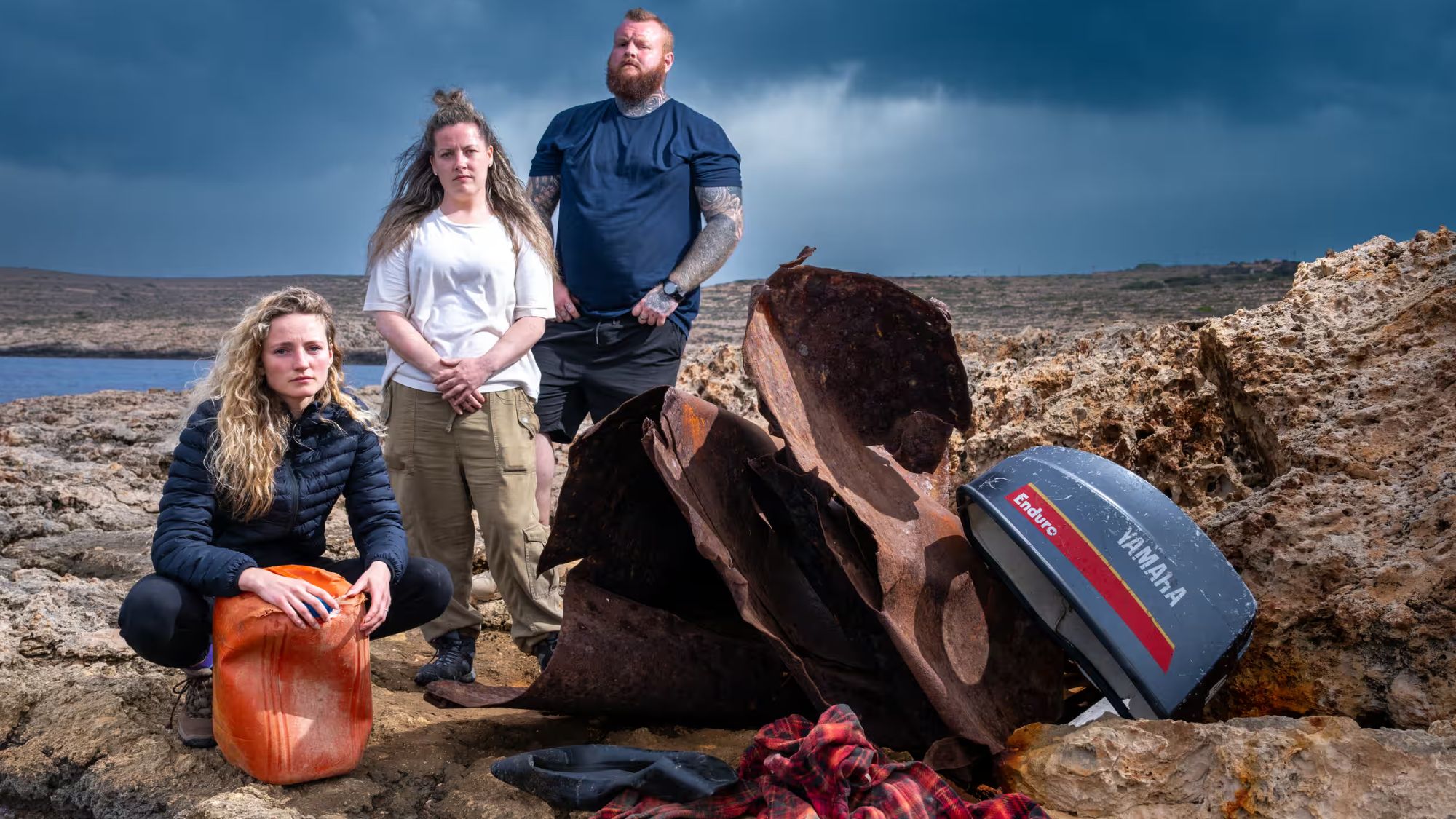Go Back to Where You Came From: 'eye-opening' series faces 'backlash'
New Channel 4 programme sees Britons journeying to Syria and Somalia to see migrant experience first-hand

A free daily email with the biggest news stories of the day – and the best features from TheWeek.com
You are now subscribed
Your newsletter sign-up was successful
Polarising new reality show "Go Back to Where You Came From" sees six opinionated Britons sent to war-torn Syria and Somalia to trace perilous migrant routes back to the UK. The broadcaster's blurb asks if the "eye-opening" journey will "change hearts and minds", said Anita Singh in The Telegraph. "I haven't seen the whole series, but I'll wager that the answer is no."
'Dumb clickbait'
"Who else but Channel 4 would commission a reality 'experiment' about immigration and title it with that old xenophobic phrase, 'Go Back to Where You Came From'?", asked Gerard Gilbert in The i Paper. Given the provocative name, this programme is clearly designed to "get your back up" from the start, said Abha Shah in The Standard. But upon introduction to the participants, it becomes clear "I'm a Bigot, Get Me Out of Here!" would have been "far more fitting".
"What was Channel 4 thinking?", asked Carol Midgely in The Times. While a show tackling the "very complex subject" of immigration is necessary, the issue is that it is treated "with all the sophistication of a custard pie to the face". A programme like this should feature "the shades of grey people" who are worried about immigration, but still "feel compassion". Instead, the broadcaster has selected its participants "precisely because they may create a ruckus on social media".
The Week
Escape your echo chamber. Get the facts behind the news, plus analysis from multiple perspectives.

Sign up for The Week's Free Newsletters
From our morning news briefing to a weekly Good News Newsletter, get the best of The Week delivered directly to your inbox.
From our morning news briefing to a weekly Good News Newsletter, get the best of The Week delivered directly to your inbox.
It's this "dumb clickbait" that means the series is "let down", said Singh in The Telegraph. Empathy for asylum seekers notwithstanding, people will never want "them living in a hostel at the end of your road", so the show is unlikely to change minds – "and why should it?"
'Rare insights'
The "backlash" to this series seems to miss a vital question, said charity director Gareth Benest in The Guardian, "if this was an educational documentary, would anyone watch it?" It would be better to "hear the voices of people with direct experience" of immigration, rather than the "toxic bigotry" throughout. But "contentious issues" like these require "alternative formats to find a mass audience" or run the risk of being forgotten entirely.
If for nothing else, the show can be applauded in the sense that it offers "rare insights into the terrible plight of millions of poor and displaced people", said Gilbert in The i Paper. And while it is, at times, "uncomfortably voyeuristic", added Benest, "I'm glad it was made" if it can "shed light" on a spiralling crisis in a "primetime slot".
A free daily email with the biggest news stories of the day – and the best features from TheWeek.com
Rebekah Evans joined The Week as newsletter editor in 2023 and has written on subjects ranging from Ukraine and Afghanistan to fast fashion and "brotox". She started her career at Reach plc, where she cut her teeth on news, before pivoting into personal finance at the height of the pandemic and cost-of-living crisis. Social affairs is another of her passions, and she has interviewed people from across the world and from all walks of life. Rebekah completed an NCTJ with the Press Association and has written for publications including The Guardian, The Week magazine, the Press Association and local newspapers.